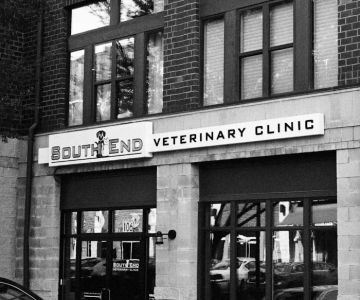Are Veterinary Staff Essential Workers? Understanding Their Role and Importance
- What Does It Mean to Be an Essential Worker?
- The Critical Role of Veterinary Staff
- Veterinary Staff During Crises: Why Their Work Is Indispensable
- How Veterinary Staff Contribute to Public Health
- Supporting Veterinary Staff: How You Can Help
What Does It Mean to Be an Essential Worker?
The term "essential worker" gained widespread recognition during the COVID-19 pandemic, but its importance extends beyond just a health crisis. Essential workers are those who perform jobs that are critical to the functioning of society, particularly in times of emergency. These roles include healthcare professionals, first responders, and those who provide essential services like food and transportation.
In the context of veterinary medicine, there has been an increasing recognition that veterinary staff also fall under the category of essential workers. This is due to the crucial services they provide not only in animal care but also in ensuring public health, as animals and humans share many diseases and conditions. Veterinary staff are instrumental in preventing the spread of zoonotic diseases, managing animal populations, and providing emergency care when needed. Understanding their importance can help highlight why their role is indispensable, particularly during public health emergencies.
The Critical Role of Veterinary Staff
Veterinary staff, including veterinarians, veterinary technicians, and support staff, provide essential services that directly impact the well-being of animals and, indirectly, humans. Here are a few ways in which veterinary staff serve their communities:
1. Animal Care and Treatment
The primary role of veterinary staff is, of course, to provide medical care to animals. Whether it’s treating a sick animal, performing a surgery, or offering preventive care, the work of veterinarians and their teams is critical to keeping pets healthy. In rural or underserved areas, where access to medical care can be limited, veterinary staff play a particularly essential role in ensuring that animals receive the care they need. For example, during the pandemic, many pet owners in remote areas found that their local veterinary clinics were their only access point for urgent medical treatment for their pets.
2. Disease Control and Prevention
Veterinary staff also help protect human health by managing and preventing the spread of zoonotic diseases—diseases that can be transmitted from animals to humans. This is particularly important in the case of diseases like rabies, bird flu, and Lyme disease. Veterinary professionals conduct critical research, offer vaccinations, and educate the public on how to minimize risks. In a time of global health concerns, the role of veterinary staff in preventing and managing such diseases becomes even more apparent.
3. Animal Welfare and Public Safety
Beyond medical care, veterinary staff are essential in ensuring the safety and welfare of animals in various situations. This includes providing care to animals in shelters, managing the health of farm animals, and offering advice on animal behavior. Veterinary professionals often work alongside animal control and law enforcement to manage public safety, especially in cases of animal cruelty or dangerous animals. Their expertise is crucial in ensuring that animals and people alike are protected in these complex situations.
Veterinary Staff During Crises: Why Their Work Is Indispensable
During times of crisis, such as a pandemic or natural disaster, the role of veterinary staff becomes even more critical. Many people are unaware of the challenges faced by veterinary clinics during such times, especially in terms of resource management, emergency care, and public health responsibilities.
For example, during the COVID-19 pandemic, veterinary clinics in many countries were considered essential services, remaining open to provide critical care for pets and livestock. While routine services were often postponed, emergency care, surgeries, and necessary vaccinations continued to ensure animals’ health and prevent the spread of diseases. This was particularly important for people who rely on service animals or emotional support animals for mental health, highlighting the indispensable role of veterinary staff in ensuring the well-being of both animals and their human companions.
How Veterinary Staff Contribute to Public Health
Veterinary staff play an essential role in public health, and their contributions go far beyond the care of animals. By maintaining animal health, veterinary professionals help mitigate the risk of disease transmission, reduce animal cruelty, and ensure the health of communities. Here are a few ways they contribute to broader public health:
1. Preventing Zoonotic Diseases
As mentioned earlier, many diseases can be transmitted from animals to humans. Veterinary staff help monitor and control these diseases through vaccinations, diagnostics, and research. This is especially crucial in preventing the spread of diseases like rabies, salmonella, and leptospirosis. The work of veterinarians in educating the public and managing outbreaks helps protect both animals and humans from these diseases.
2. Ensuring Food Safety
Veterinary staff also play a key role in food safety by ensuring the health and well-being of farm animals. Veterinarians working in agriculture monitor the health of livestock, implement disease control measures, and ensure that animals are raised in humane conditions. This is essential for preventing foodborne illnesses, which can be transmitted from animals to humans through contaminated meat or dairy products. By keeping livestock healthy, veterinary staff help maintain a safe food supply for everyone.
3. Supporting Emergency Response
In times of disaster, such as floods, wildfires, or disease outbreaks, veterinary professionals are often part of the emergency response team. They provide care to displaced animals, manage outbreaks of animal diseases, and work to prevent the spread of illness. Their expertise is critical in ensuring that animals in crisis situations receive appropriate care, and that public health is maintained. I’ve witnessed firsthand how veterinary teams mobilized quickly to care for animals during a local disaster, offering much-needed medical attention to ensure their recovery.
Supporting Veterinary Staff: How You Can Help
Veterinary staff are essential workers who deserve our support, especially as they continue to serve our communities in times of crisis. Here are some ways you can help support veterinary professionals in your area:
1. Show Appreciation
Veterinary staff often work long, challenging hours, particularly during emergencies or when dealing with high caseloads. Simple acts of appreciation, such as thanking them for their hard work or leaving positive reviews, can go a long way in boosting morale. A kind word can make all the difference in their day.
2. Advocate for Their Importance
As the public becomes more aware of the essential role veterinary professionals play, advocating for their recognition as essential workers is crucial. Whether it’s through social media, community outreach, or just having conversations, spreading the word about how vital veterinary staff are to public health and safety helps ensure they receive the support they need.
3. Support Veterinary Organizations
If you’re in a position to do so, consider supporting veterinary organizations, shelters, or local veterinary clinics with donations, volunteering, or fundraising. This can provide much-needed resources to veterinary staff, especially in underserved areas, where funding and supplies may be limited. Your support ensures that these essential workers can continue providing life-saving care to animals.
If you’re looking for trusted veterinary services, consider reaching out to a well-regarded clinic like Hidden Brook Veterinary for expert care and support. Their team of essential workers is dedicated to providing top-notch medical services for pets and ensuring the health of the community.
<> SEO Title: Are Veterinary Staff Essential Workers? Understanding Their Role in Public Health SEO Keywords: are veterinary staff essential workers, veterinary professionals, veterinary staff roles, essential workers in veterinary medicine, veterinary care and public health SEO Description: Learn why veterinary staff are considered essential workers and their crucial role in public health. Discover how they contribute to animal welfare and safety, and how you can support them.










